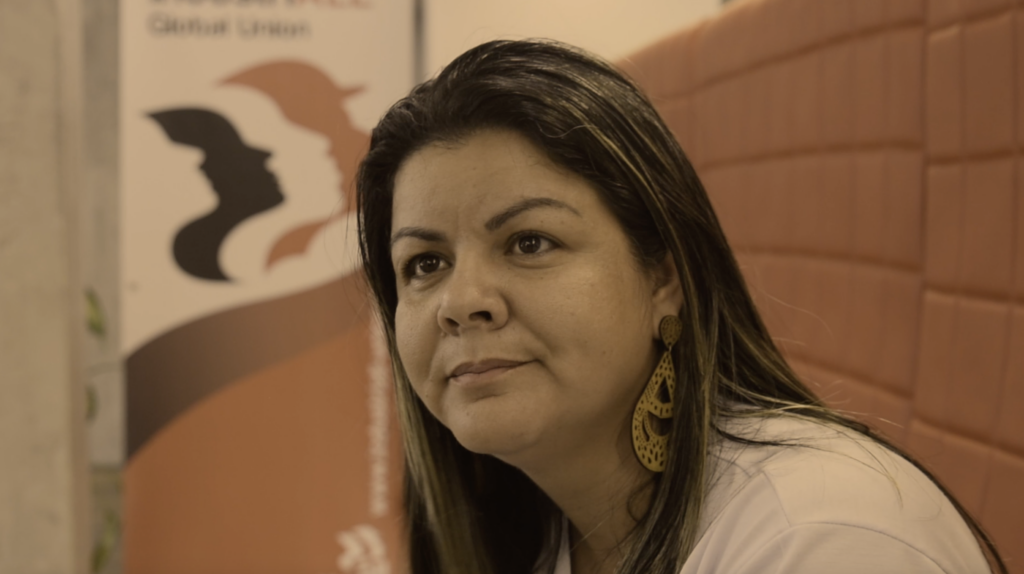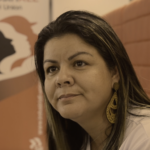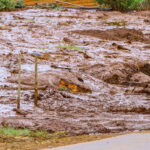23 January, 2020One year ago, the Brumadinho mine disaster took the lives of 272 people. We look at the human impact of an avoidable tragedy caused by corporate greed and negligence.
“As a mother, I die a little bit every day. I'm still stuck in the mud of that dam.”
On January 25 2019 at 12:28 pm, Andresa Rodrigues lost her only son after Vale’s Corrego do Feijão tailings dam in Brumadinho, Brazil burst. To her this is murder: laws need to be stricter to stop this happening again.
Just months after finding her son’s body, Andresa shared her sorrow and her determination to make sure that no other mother has to live through what she has this past year.
“My son Bruno was incredible, he was my light.
“I looked for my light for 105 days.
“He was murdered on 25 January, found on 5 May and buried on 6 May,” she said.
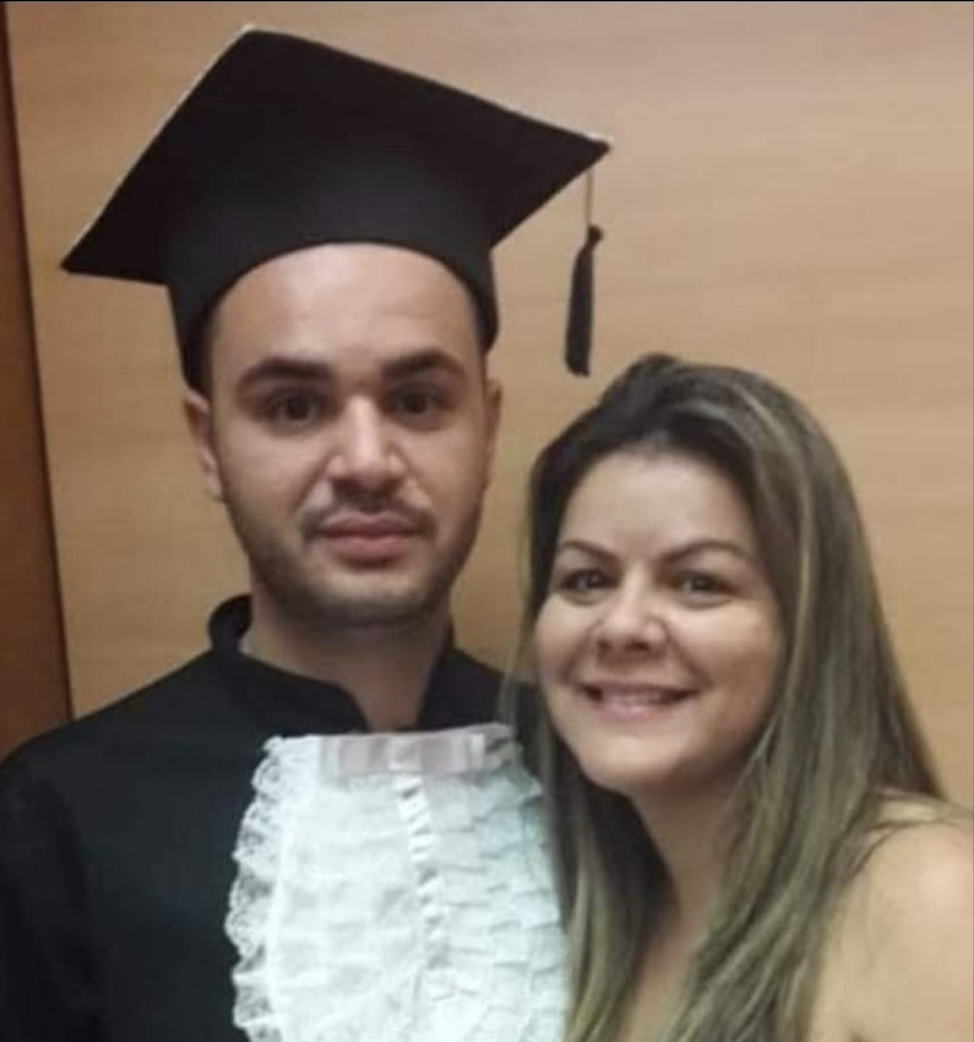
Bruno Rocha Rodrigues with his mother Andresa
Bruno Rocha Rodrigues graduated in 2018 in production engineering. He did an internship at Vale before being hired as a processing technician. He lived with his mother in Mário Campos, a city located close to Brumadinho. On the day of the tragedy, Andresa called her son, but there was no answer. The last time she saw him was on the morning of January 25 when he left for work.
Bruno was very happy working for the company, he loved his job and defended it.
“I visited his place of work in 2018 and asked him if he was scared to work there and he said no. He didn't suspect that there was any danger.”
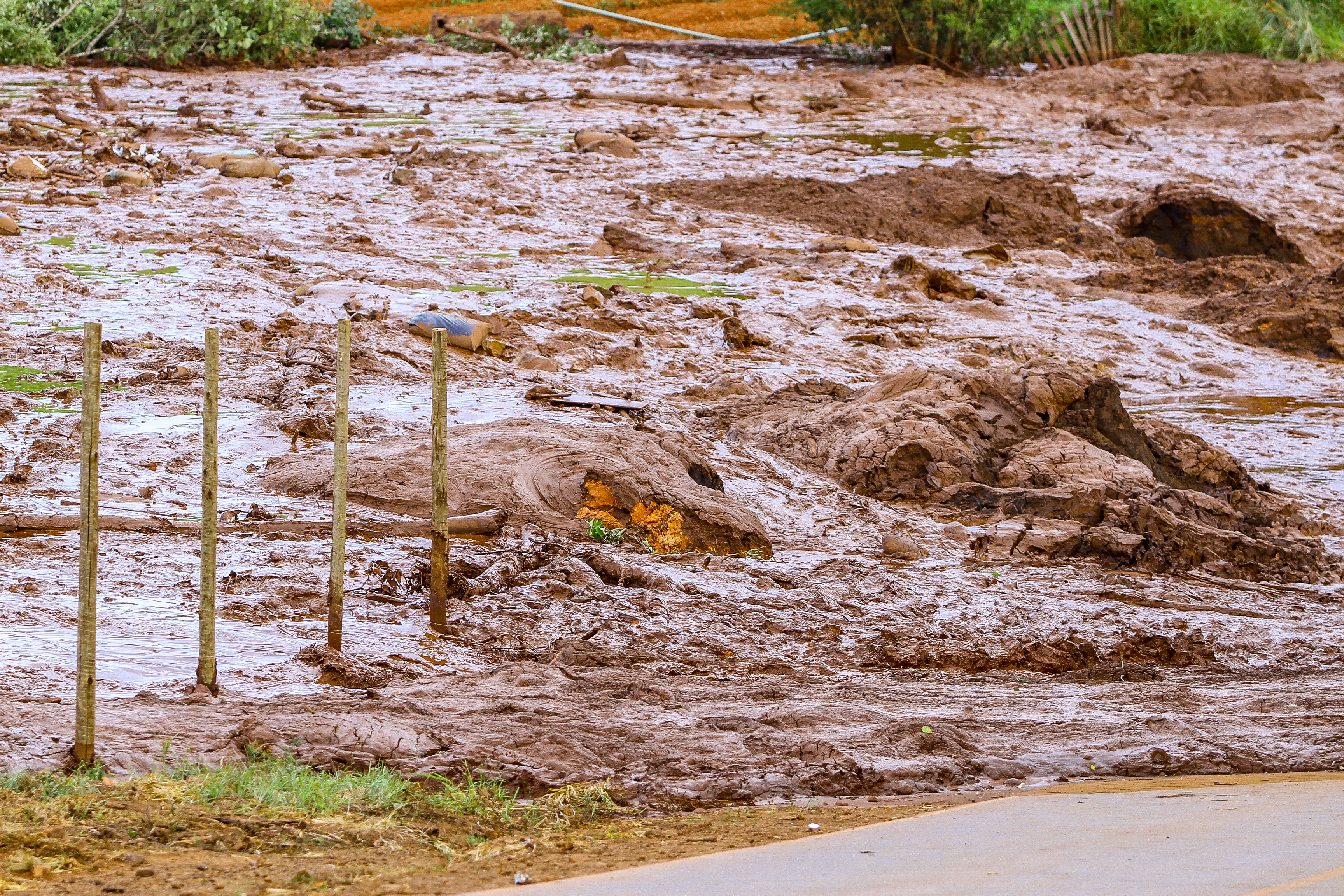
Mining tailings after dam collapse in Brumadinho
Vale is a private, publicly traded company, headquartered in Brazil and present in around 30 countries around the world. It’s the world’s biggest producer of iron ore, which is converted by its customers into steel and is a vital part of metal industry supply chains.
Tailings dams: the impact of bad management
Tailings are the solid material plus runoff and water waste remaining after the recoverable metals and minerals have been extracted from mined ore. The physical and chemical characteristics of the tailings vary but are highly toxic and if released into the environment can have devastating effects on the water, fauna and flora.
Tailings are most commonly stored in surface facilities, which can represent a significant concern at mining operations because of the monitoring and maintenance required to keep them secure. Which is why they have to be managed and secured on a regular basis.
Vale is a member of the International Council on Mining & Metals (ICMM), represented by the CEO. The ICMM established guidelines on preventing the failure of tailings storage facilities, released after the Fundão Dam collapse in Mariana in 2015.
The ICMM guidelines recognize that companies have a significant role to play in creating a safer and more sustainable mining and metals industry. ICMM members commit to working together, alongside governments and local communities, to improve quality of life beyond the provision of the minerals and metals that sustain modern living.
“Membership is earned. Joining ICMM requires undergoing a rigorous admissions process,” says the statement on admission requirements on the ICMM website.
Vale has failed to adhere to standards in tailings dam management outlined by the ICMM. This tragic accident could have been prevented had measures been put in place.
According to Andresa, this tragedy could clearly have been avoided. Once the dam burst, it took three to four minutes for the runoff to get to the place where her son was working, but because there was no alarm to notify them of the collapse, they had no idea what was coming.
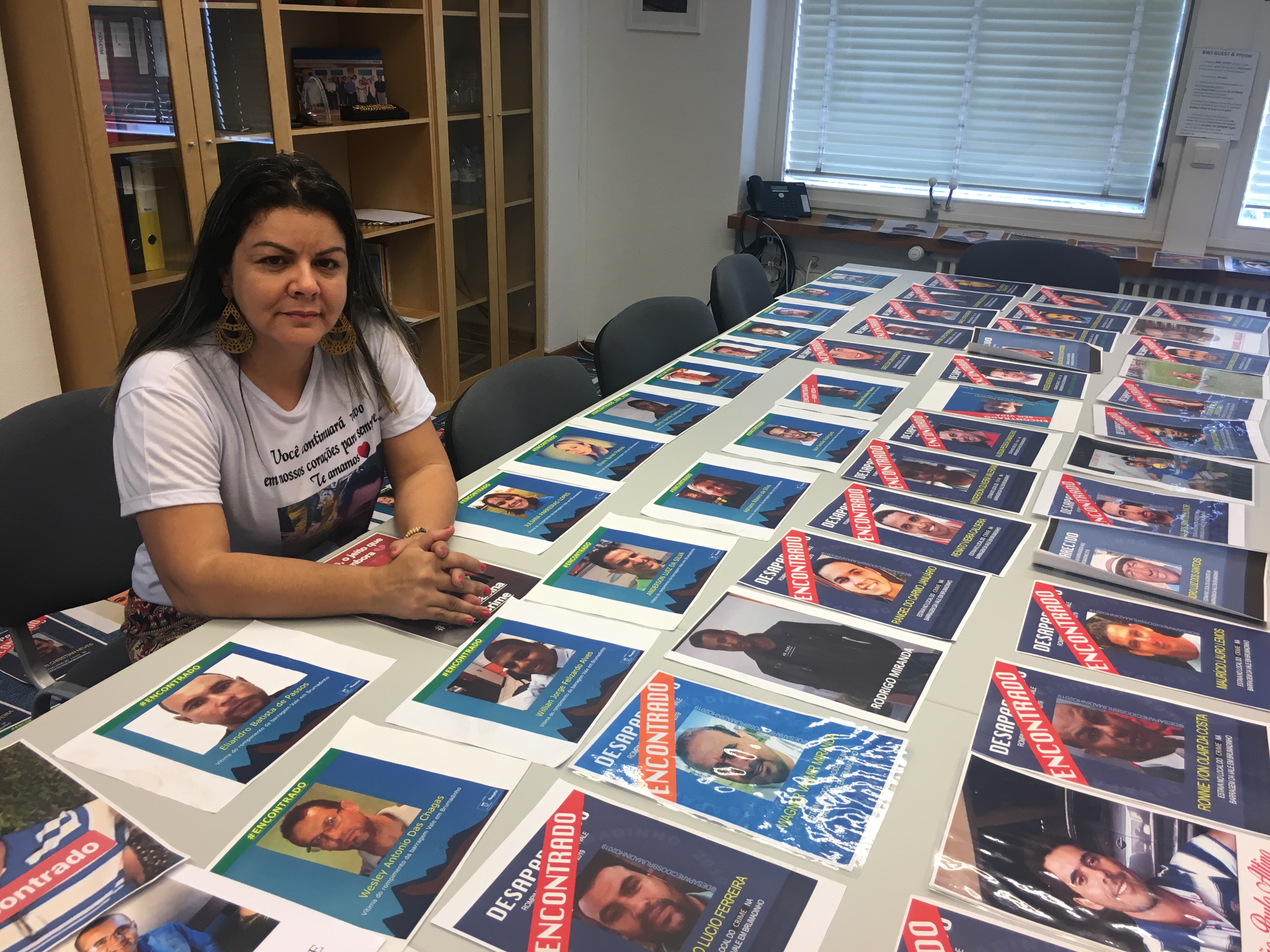
Andresa Rodrigues sitting with the photos of the victims of the dam burst – Geneva Switzerland
“They were buried alive. The people working there were young with the physical ability to move fast, but there was no alarm in their workplace. If there had been an alarm the 272 people would have had the time to escape, but they were buried alive.”
The situation today is still not resolved: 272 people were killed and 11 bodies have still not been found. The 83 workers who survived the accident have not yet received any compensation. And Vale refuses to speak with the union representing outsourced workers.
The Brumadinho dam disaster could have been prevented. The high death toll and the damage to the surrounding communities and the environment have been extreme. Vale’s investigation into the causes of the disaster was not conducted properly. If Vale had acted responsibly, the tragedy could have been avoided.
“There are still survivors that are working to pull bodies out of the mud and the psychological effect of this is very tough. This is why it is a crime that was committed and continues to be committed. The way that the company is treating the survivors and the families is inhumane,”
said Andresa.
Many families have come together regularly since the dam burst, working together with communities, survivors, firefighters, police and local ministers to find the remaining bodies and to ensure that Vale is held responsible for what has happened.
“The first part of our fight is that not a single body should be left under the mud. This is our first struggle. The second is that Vale be punished for this crime of killing our loved ones. They need to ask for forgiveness. They have killed 272 people and they continue to kill us every single day. These families are dying more and more each day.
“We want a memorial with the names of our loved ones. We want Vale to be condemned for this criminal act, the people who have committed this crime must go to jail. There also needs to be financial compensation because our loved ones died because of the company’s greed. The company put money before life. We need to achieve real justice in this case because no one else should die because of mining exploitation,”
said Andresa.
